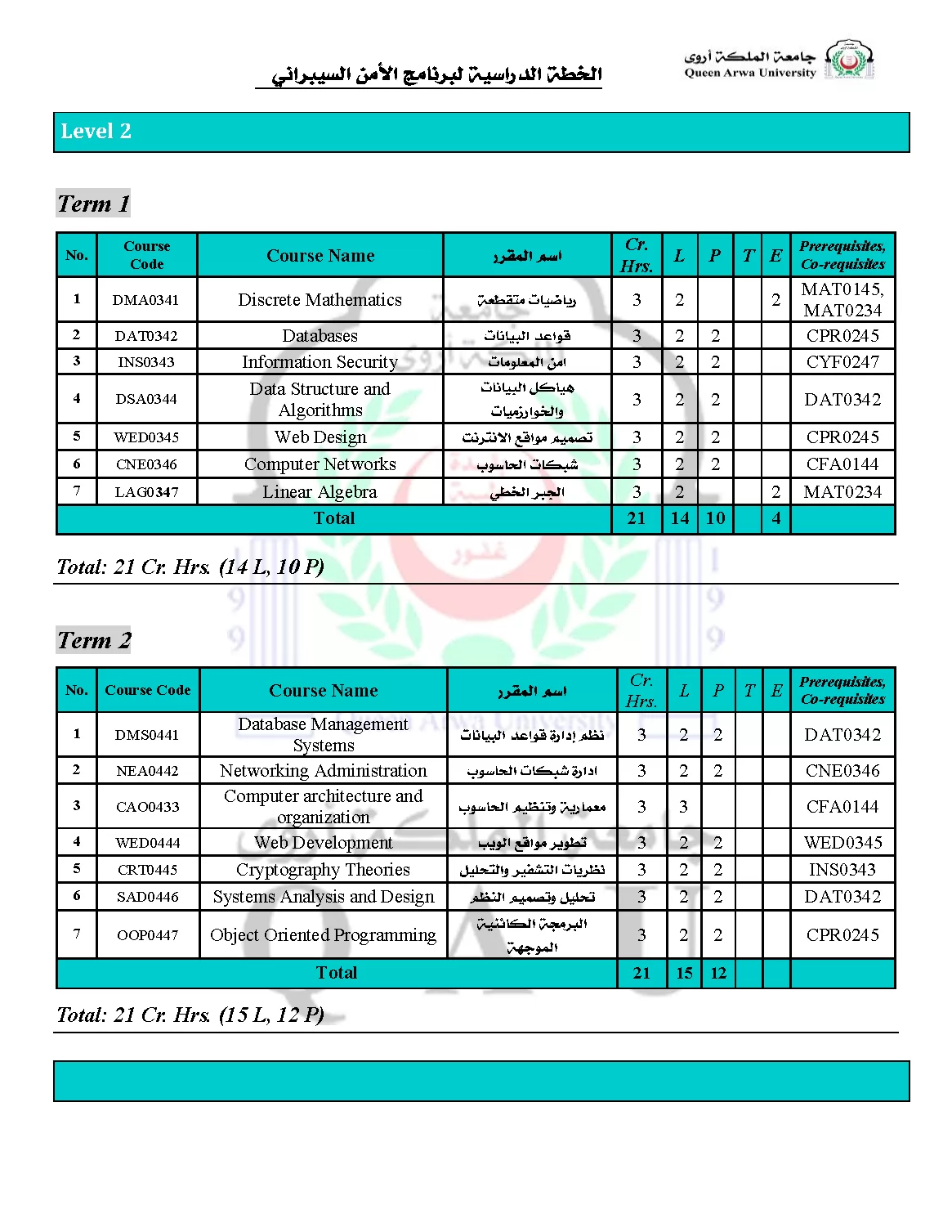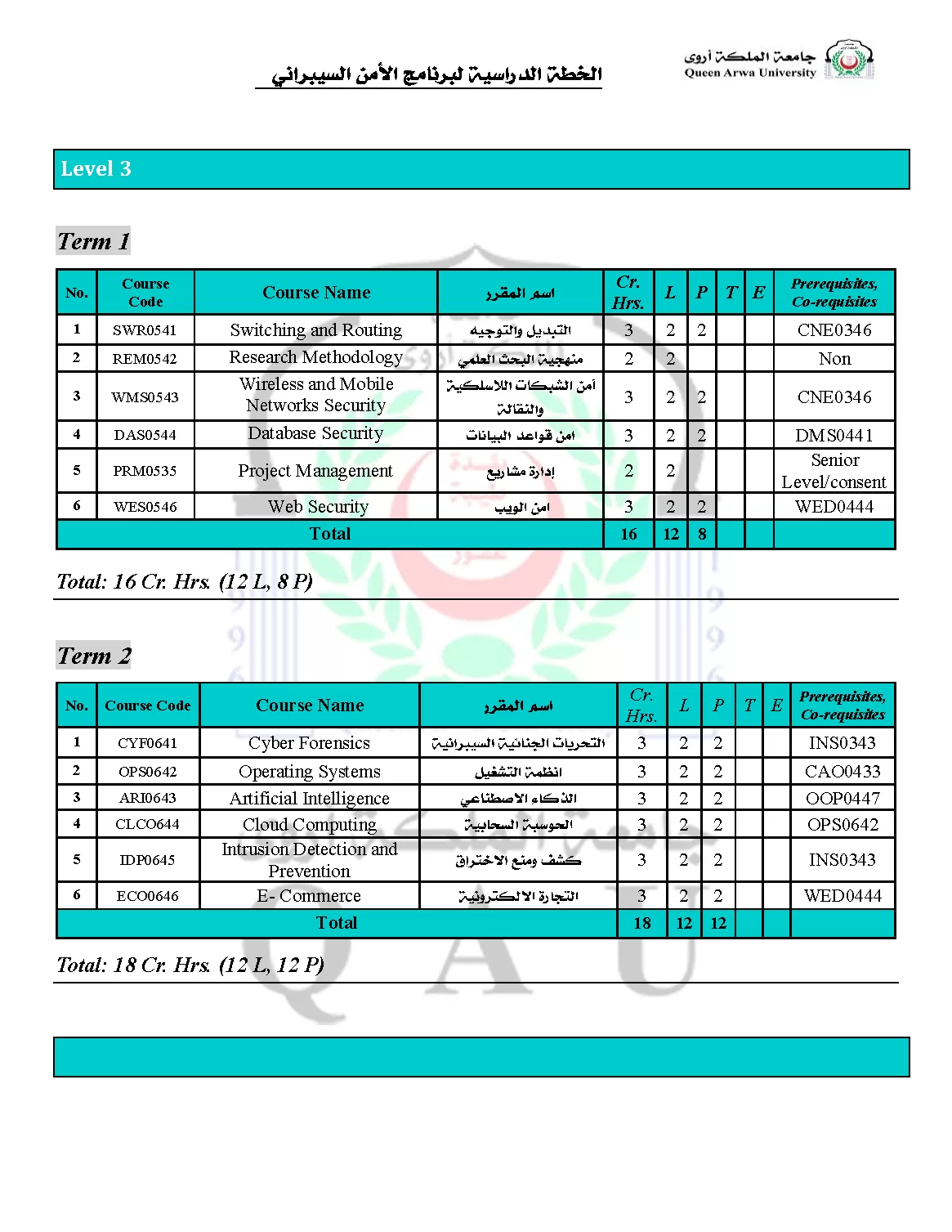Cybersecurity Program
Cybersecurity Program
Mission
Preparing and qualifying scientific cadres academically and professionally, providing distinguished education and an appropriate academic environment in the fields of theoretical and applied engineering and computer science, and contributing to community service in related fields.
Objectives
- Providing a distinguished, specialized and highly qualified professional cadre.
- Providing modern technological means and working on the basis of the principles of quality and academic accreditation.
- Enable the student to develop his capabilities and prepare him for production in the labor market with confidence and high efficiency.
- Developing students' scientific knowledge, research skills, communication and leadership skills.
Learning Outcomes
Knowledge:
- A1: Demonstrate a sound knowledge of computing and mathematics that leads to exercising critical judgment for solving real-world cybersecurity problems.
- A2: Show deep understanding of cybersecurity concepts, theories, practices, requirements, and issues for computing assets defense, digital forensics investigation, and business continuity.
Skills:
- B1: Analyze and evaluate complex computing security issues and problems, computing system impact on individuals, society, and business to identify suitable solutions, including security requirements, plans, policies, technologies, tools, and techniques.
Competencies:
- C1: Design, implement, and evaluate a cybersecurity techniques-based solution to meet an individual's and organization's cybersecurity needs.
- C2: Apply and employ acquired cybersecurity principles, theories, and practices to develop secure computing-based systems and digital forensic investigation.
- C3: Detect vulnerabilities, threats, risks, and response and mitigate their effects for preserving computing assets and business continuity in cybersecurity practices.
Attitudes:
- D1: Communicate and negotiate effectively with a range of audiences.
- D2: Function effectively as an individual and as a member or leader of a team in a multidisciplinary environment.
- D3: Engage in lifelong learning for continual development in academic or career life.
- D4: Demonstrate professionalism, social, and ethical consideration to make informed judgments in computing practice in accordance with ethical and legal principles.
Graduate Attributes
Upon successful completion of an undergraduate cybersecurity program, the graduates will be able to:
- Knowledgeable: Have deep and comprehensive knowledge in the principles, theories, applications, and practices related to cybersecurity.
- Problem Solver and Creative Thinker: Possess the skills of complex cybersecurity problem analysis and solving.
- Developer: Have the skills of developing and implementing secure computing systems.
- Technical: Proficient in the usage of modern cybersecurity tools and techniques.
- Professional: Committed to professional responsibilities, including social, legal, ethical, and cultural issues in cybersecurity practices.
- Communicator: Skilled in communication and negotiation in different contexts.
- Collaborator and Manager: Competent in working as an individual and as a team member or team leader in different positions.
- Researcher and Self-learner: Committed to lifelong learning and possess research skills.




Faculty of Law
The Faculty of Law was established in the academic year 1995/1996 and is considered one of the solid scientific tributaries of the university.
Faculty of Economics and Administrative Sciences
The Faculty of Economics and Administrative Sciences was established in the academic year 1996/1997 to meet with other tributaries of practical and human life within the framework of a holistic and integrated view of science and knowledge and its role in developing life and advancing its human, material and spiritual elements.